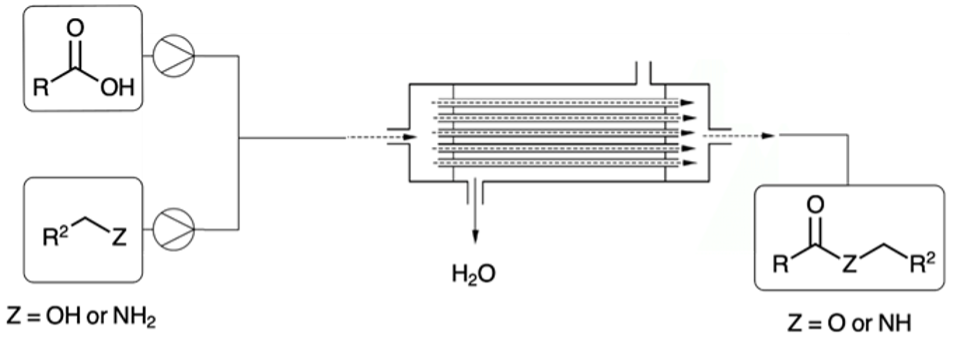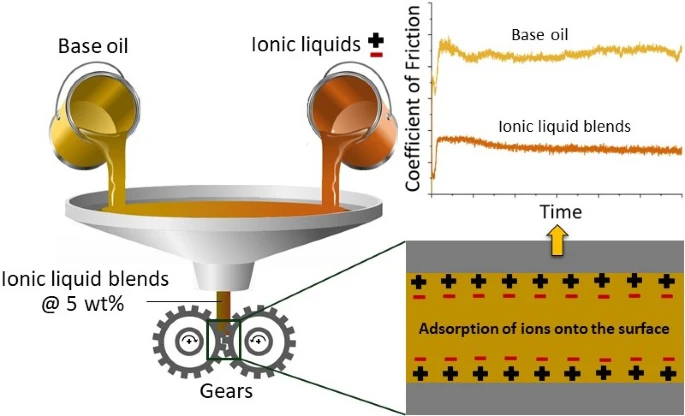

Ionic liquids have been investigated for an extensive range of applications. This is due to their designation as designer solvents, whereby the physiochemical properties of an ionic liquid can be targeted for specific applications. Due to their tuneable properties, the obtained materials are used in diverse areas, covering their use in catalysis, as engineering fluids or for biomedical analysis.
Go with the flow: Continuous synthesis in and of ionic liquids
Flow chemistry involves a chemical reaction run in a continuous flow stream in tubes or microreactors for efficient manufacture of chemical products. We are developing novel synthetic protocols for the continuous-flow preparation of ionic liquids in microreactors for a pool of ionic liquid with high purity and improved environmental footprint.
The obtained ionic liquids are further used in catalysis, for example as supported ionic liquid-phase (SILP) which can be used for transition metal catalysed reactions in continuous flow. Additionally, we are working on ionic liquid-functionalized catalytic membrane systems. Membranes are prepared and/or functionalized in house to enhance esterification and amide formation through combination of water removal, catalytic ionic liquids and continuous flow chemistry facilitated by the membrane.

Engineering fluids

Molecular diagnostics with tailored ionic liquids
The extraction of nucleic acids using commercial kits is very laborious and remains a major bottleneck for molecular diagnostics in clinical and environmental samples. In an ongoing cooperation with the Institute of Chemical, Environmental and Bioscience Engineering, tailored ionic liquids and optimized extraction protocols are developed that allow the rapid and quantitative extraction of DNA from a broad range of microbial and viral targets. Ultimately, they have the potential to revolutionize clinical as well as environmental diagnostics especially for rapid point-of-care and on-site applications.

